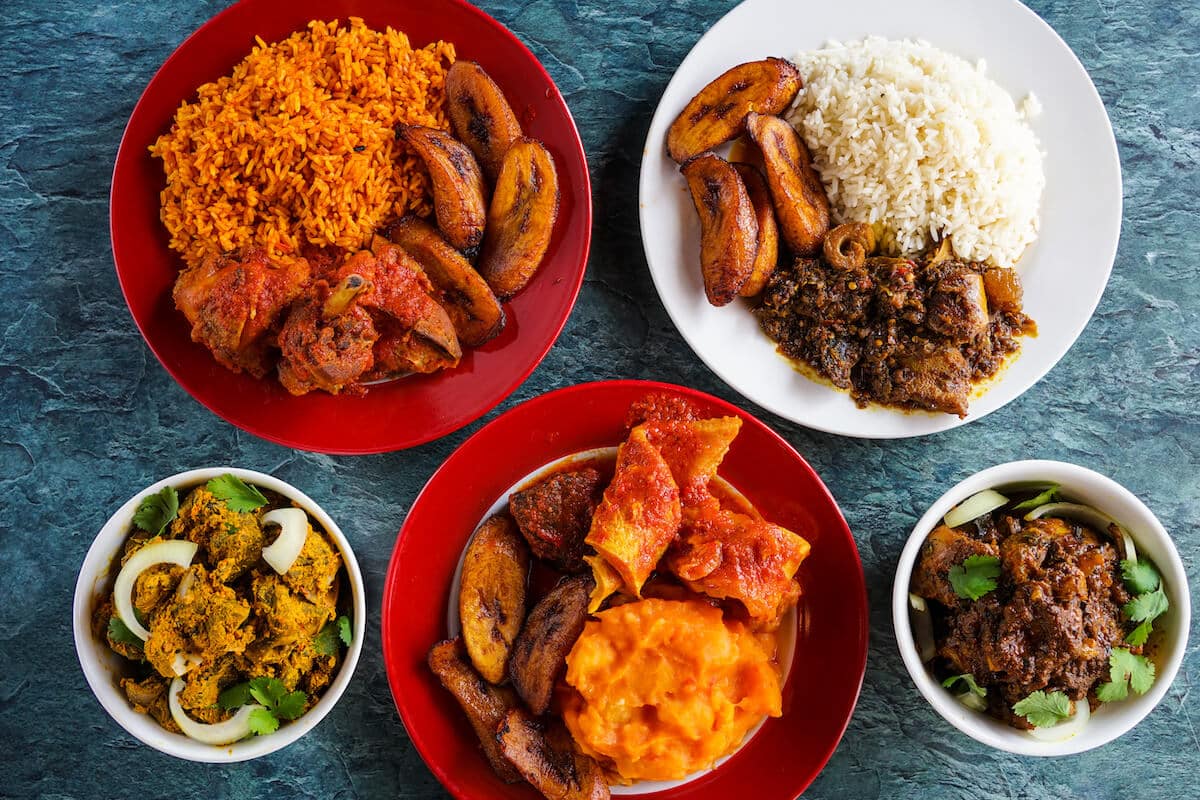- Empty cart.
- Continue Shopping
How to Create a Healthy Meal Plan with Nigerian Foods

Creating a healthy meal plan is essential for maintaining overall well-being and supporting optimal health. When it comes to Nigerian cuisine, there is a rich variety of delicious and nutritious options to choose from. We’ll provide practical steps to help you create a balanced and healthy meal plan using Nigerian foods.
1. Diversity of Staples
Nigerian cuisine is known for its diverse array of staples, including rice, yams, plantains, and various types of beans. Incorporate a variety of these staples into your meal plan to ensure a good balance of nutrients.
2. Include a Mix of Macronutrients
A balanced meal plan should include a combination of macronutrients: carbohydrates, proteins, and healthy fats. For example, a meal might consist of rice (carbohydrates), grilled fish (protein), and a side of vegetables cooked in palm oil (healthy fats).
3. Incorporate Lean Proteins
Proteins are essential for muscle repair and overall health. Include lean sources like poultry, fish, beans, lentils, and tofu in your meals. Nigerian cuisine offers a wide range of protein-rich options, including grilled chicken, fish stews, and bean-based dishes.
4. Embrace Vegetables
Vegetables are packed with essential vitamins, minerals, and fiber. Incorporate a variety of colorful vegetables in your meals for added nutrition. Nigerian dishes like vegetable soups (e.g., egusi soup, okra soup) and stir-fried greens (e.g., ugu leaves, spinach) are excellent choices.
5. Opt for Whole Grains
Choose whole grains like brown rice, whole wheat bread, and unprocessed millet or sorghum over refined grains. Whole grains are rich in fiber and nutrients, providing sustained energy and promoting digestive health.
6. Healthy Fats in Moderation
While fats are an important part of a balanced diet, it’s crucial to choose healthy sources. Use oils like palm oil, coconut oil, or olive oil in moderation. Incorporate sources of healthy fats like avocados, nuts, and seeds into your meals.
7. Limit Processed Foods and Sugars
Minimize the consumption of processed foods, sugary snacks, and sugary drinks. These items often lack essential nutrients and can contribute to health issues in the long run.
8. Hydration Matters
Stay well-hydrated by drinking plenty of water throughout the day. Herbal teas, natural fruit juices, and coconut water are also good options. Limit sugary beverages and opt for natural, unsweetened options.
9. Practice Portion Control
Pay attention to portion sizes to avoid overeating. Nigerian meals are often served in generous portions, so it’s important to be mindful of portion control, especially with calorie-dense dishes.
10. Plan Balanced Meals
Each meal should ideally include a combination of carbohydrates, proteins, and vegetables. For example, a balanced meal might consist of grilled fish, jollof rice, and a side of steamed vegetables.
11. Snack Smartly
Choose healthy snacks like fruits, nuts, yogurt, or whole-grain crackers. These options provide essential nutrients and help maintain energy levels between meals.
12. Be Mindful of Special Dietary Needs
If you have specific dietary needs or restrictions, such as vegetarianism, gluten intolerance, or food allergies, plan meals accordingly. There are many delicious Nigerian dishes that cater to various dietary preferences.
Conclusion: Enjoying a Nutritious Nigerian Diet
Creating a healthy meal plan with Nigerian foods is both achievable and enjoyable. By incorporating a variety of nutrient-rich staples, lean proteins, colorful vegetables, and whole grains, you can nourish your body with the diverse flavors of Nigerian cuisine while supporting your overall health. Remember, moderation, balance, and mindful eating are key principles in crafting a nutritious and satisfying meal plan.








